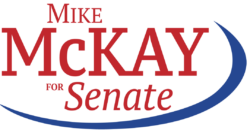Once again, retired state employees are facing the loss of their state-funded prescription drug benefits unless the General Assembly takes action. We urge the enactment of SB349 to preserve their promised and well-earned benefits and protect them from the uncertainties of partisan politics.
In 1993, the Maryland legislature enacted a comprehensive health benefits program – including prescription drug coverage – for most retired state employees. In 2003, the U.S. Congress created Medicare Part D, providing prescription drug coverage for persons over age 65.
But Part D coverage was limited by the infamous “doughnut hole,” which saved the government a few dollars while imposing heavy costs on many enrollees. In response, the Maryland legislature reaffirmed the state’s commitment to provide prescription drug insurance benefits for state retirees who were also eligible for Medicare.
The “doughnut hole” was gradually phased out by the Affordable Care Act of 2010, and the Maryland legislature moved to end its own prescription drug coverage when the phase-out was completed in 2019. Those benefits were saved, for a time, by litigation resulting in a preliminary injunction, but the litigation and injunction ended a year ago when the U.S. Court of Appeals for the 4th Circuit held that the legislature’s commitment to retirees was not an enforceable contract.
Now the Maryland Department of Budget and Management is warning retirees that they will have to enroll in Medicare Part D during open season later this year if they wish to enjoy prescription drug coverage beginning in 2025. The state has estimated it will save roughly $180 million annually, and reduce liability for other post-retirement benefits by $8 billion. An advocate for preserving the state benefits, however, put the net cost of the program in 2022 at $119.4 million or 0.2% of the general fund operating budget.
Fortunately, Maryland State Sen. Mike McKay – a Republican from Western Maryland – has introduced SB349 to restore the state benefits before it’s too late. In our view, there are several reasons to support McKay’s bill.
First, states offer generous retirement benefits precisely to attract and retain the best possible employees. That purpose is surely undermined when long-standing benefit packages are cut. Second, it is an article of faith, at least among conservatives, that safety net programs are more appropriately provided by the state rather than the federal government.
And third, the continuing call to “repeal and replace” the Affordable Care Act leaves the future of the federal program in some doubt.
But the overriding reason to support McKay’s bill is the moral commitment of the state toward those who have served it well for many years. One retiree recently told the Daily Record that he would have to pay thousands of dollars more per year if forced to rely on Medicare.
“We were promised these benefits, we relied on these benefits, many people made employment choices that were at least affected by these benefits, and now the benefits are being taken away summarily, without what we consider to be an adequate replacement.” The current legislative session “is our last chance,” he said.
Participating in this editorial are members of the board who may be personally affected by the called for legislation. Board members Arthur F. Fergenson and Debra G. Schubert did not participate in this opinion.
EDITORIAL ADVISORY BOARD MEMBERS
James B. Astrachan, Chair
James K. Archibald
Gary E. Bair
Andre M. Davis
Eric Easton
Arthur F. Fergenson
Nancy Forster
Susan Francis
Leigh Goodmark
Julie C. Janofsky
Ericka N. King
Susan F. Martielli
Angela W. Russell
Debra G. Schubert
H. Mark Stichel
The Daily Record Editorial Advisory Board is composed of members of the legal profession who serve voluntarily and are independent of The Daily Record. Through their ongoing exchange of views, members of the board attempt to develop consensus on issues of importance to the bench, bar and public. When their minds meet, unsigned opinions will result. When they differ, or if a conflict exists, majority views and the names of members who do not participate will appear. Members of the community are invited to contribute letters to the editor and/or columns about opinions expressed by the Editorial Advisory Board.

